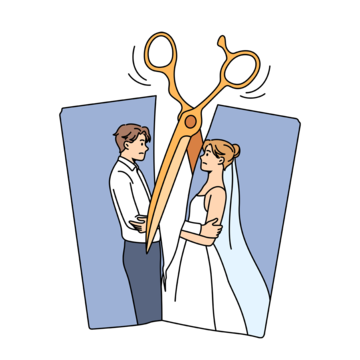Please note that I’m not a lawyer or a mediator. This isn’t legal advice.
No one gets married with the expectation of getting divorced someday. Regrettably, though, divorce rates are expected to continue climbing. Divorce affects all areas of your life, including your financial health, and can result in significant challenges.
If you’re going through a divorce, there are several things you can do to minimize the negative effects on your finances.
In British Columbia, only the Supreme Court can grant a divorce. It will do so after at least one year of separation. Even if the ex-partners agree on everything, they still need to go through the Court to get a divorce.
Consider these options to help you financially survive a divorce:
Try Mediation
Mediation can be a money-saving alternative to the courts. This way, everything is a process of give and take, agreed upon under the guidance of an unbiased 3rd party. You can opt for methods of dividing your assets that are financially best for both of you.
Deciding who gets what can be difficult, as it’s usually dictated by the laws of your place of residence. In British Columbia, unless a prenup has been signed, ex-partners are entitled to 50% of common assets/property. It applies to houses, cars, boats, spousal RRSPs, pension plan, joint accounts etc…It also applies to debt.
Jointly File for Divorce
This is the fancy catchphrase for “amicable divorce”. If you and your ex-spouse are able to agree on division of property/assets and custody arrangements for your children, then you can jointly file for divorce in court. It will be cheaper and quicker than filing a contested divorce.
After the Settlement/Divorce Decree
Coping after the divorce is never easy. The unhappy fact is that, once the divorce is settled, you will most likely be less well-off financially than you were before the divorce.
To strengthen your financial picture in the aftermath, try these strategies:
- Review your financial documents. Assess what remains and be sure that every little thing is truly concluded. Be certain you:
• Cancel any joint bank accounts.
• Cancel any joint credit cards.
• Make whatever changes you need to your life insurance and any other policies.
- Take action to live within your means. If you were the main breadwinner in the relationship, you may have to make monthly alimony or child support payments. And if you didn’t have the greater salary, you will still have less total income than you did previously.
• Rather than slide further into debt, downsize your lifestyle, at least temporarily until you feel financially comfortable again. This may mean a smaller home / apartment or less expensive vacations. It may mean a much more significant change, depending on your ability to earn income now.
- Establish your necessary income. Do what it takes to get back on your feet. Network with your family and friends to let them know you’re looking for a job or an opportunity to make extra income. Network on social websites as well.
- Make a plan. You’ll need to plan your saving, investments, and budget. If you were not the primary earner, you will have two challenges: replacing the lost wages and rebuilding your credit. The good credit you had as a couple may not be as good after the divorce.
Final Word
One of the only advantages of a divorce is the ability to drastically change your lifestyle and spending habits. This is easier after divorce because it doesn’t require agreement from both parties.
Take some time to educate yourself further on personal finance to help get your finances back in shape. Start today by applying these tips and you’ll bounce back sooner than you thought.
